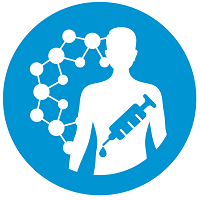Preclinical, Clinical and Translational Sciences
Speaker Spotlight: Omics-Driven Drug Delivery: Pioneering Precision Medicine
-

Robert Arnold, PhD (he/him/his)
Professor
Auburn University
Auburn, Alabama -

Sibylle Neuhoff, PhD (she/her/hers)
Senior Scientific Advisor & Deputy Head of Translational Sciences (DMPK)
Certara Predictive Technologies
Sheffield, England, United Kingdom
Spotlight Speaker(s)
Moderator(s)
In the landscape of modern medicine, the convergence of cutting-edge technologies has sparked a revolution in drug delivery strategies. At the forefront of this revolution lies the integration of omics technologies with innovative drug delivery systems, heralding a new era of precision medicine. This talk will embark on a journey through the intricate interplay of omics-driven insights and advanced drug delivery platforms, showcasing their transformative potential in shaping the future of healthcare. Topics covered will include the utilization of omics data to evaluate the effect of different drug exposure profiles, tailor drug formulations, optimize drug targeting, and development of personalized treatment regimens for maximum therapeutic efficacy and minimal adverse effects.
The diversity of conventional dosage forms and novel nanomedicines allows for the engineering of release kinetics that can be matched to desired pharmacological activity. By leveraging genomic information, researchers can identify genetic markers associated with disease susceptibility and drug response, allowing for the development of targeted nanocarriers capable of honing in on specific cellular pathways or tissue types. This multi-omics approach offers invaluable insights into the molecular signatures of disease, guiding the formulation of nanomedicines with enhanced therapeutic efficacy and reduced off-target effects.
The application of 3D cocultures and microfluidic platforms represents another frontier in gaining molecular data to guide precision medicine approaches. These sophisticated models mimic the complex microenvironment of human tissues more accurately than traditional cell cultures, offering a versatile platform for drug screening and personalized medicine. By integrating omics data into the design and analysis of 3D cocultures, researchers can unravel intricate molecular mechanisms underlying drug response and toxicity, paving the way for the development of safer and more effective therapeutics.
The emergence of genome editing technologies, notably CRISPR-Cas9, has further propelled the paradigm of precision medicine toward new horizons. By harnessing the power of CRISPR-Cas9, researchers can precisely modify disease-associated genes, opening up unprecedented opportunities for targeted therapy and gene-based drug delivery. Omics data serve as a crucial guide in identifying suitable gene targets and predicting potential off-target effects, enabling the development of CRISPR-based therapies with enhanced precision and safety profiles.
Throughout this talk, we will explore real-world applications and examples that illustrate the synergistic integration of omics and drug delivery technologies in precision medicine. From the design of targeted nanomedicines tailored to individual genetic profiles to the implementation of advanced 3D coculture models for personalized drug screening, the possibilities are vast and transformative. By embracing the omics-driven approach to drug delivery, we embark on a journey toward a future where treatments are not only effective but also precisely tailored to the unique molecular characteristics of each patient.
Learning Objectives:
- Upon completion, participants will be able to describe omics integration with drug delivery, identify precision medicine applications, explain how genomic influences can be used to evaluate exposure profiles
- Upon completion, participants will be able to describe omics technologies and in silico, in vitro, and in vivo approaches to examine exposure profiles, and evaluate the appropriateness of drug carriers.
- Participants will identify key omics technologies and their roles in drug delivery, assess their efficacy in tailoring formulations, and discuss real-world challenges and applications in precision medicine integration.

